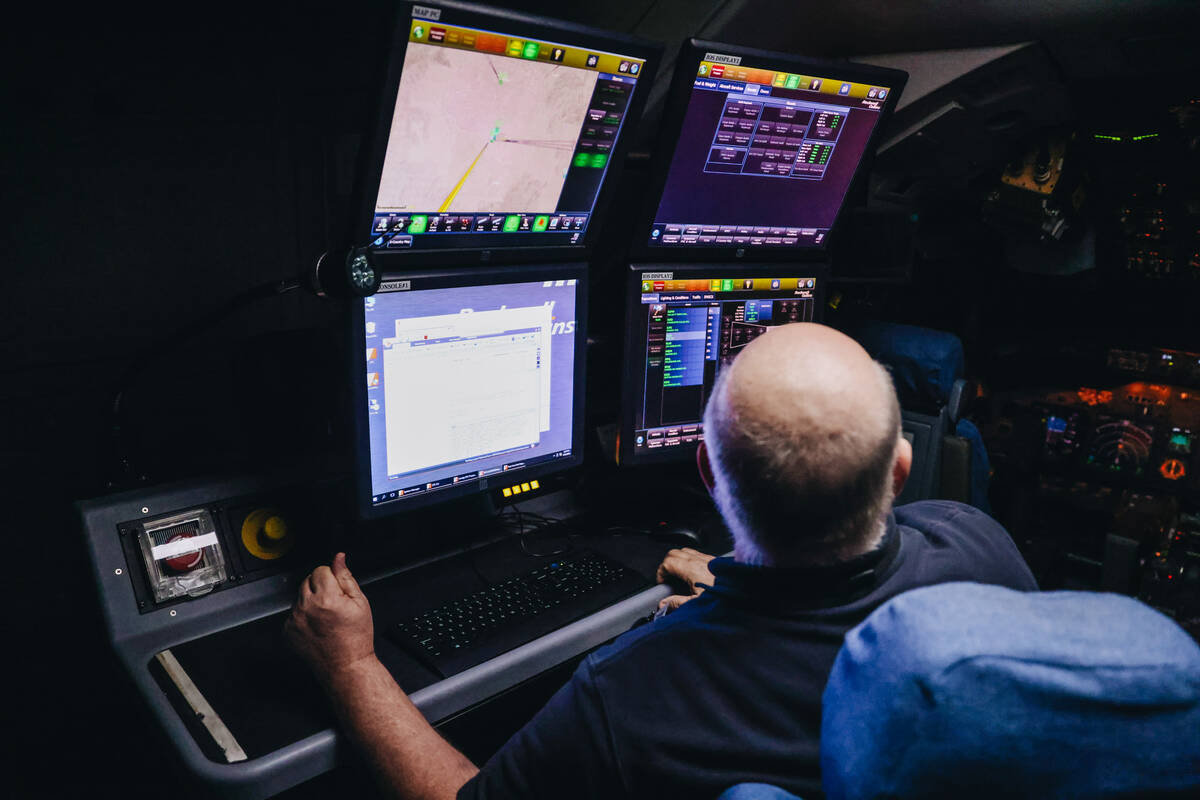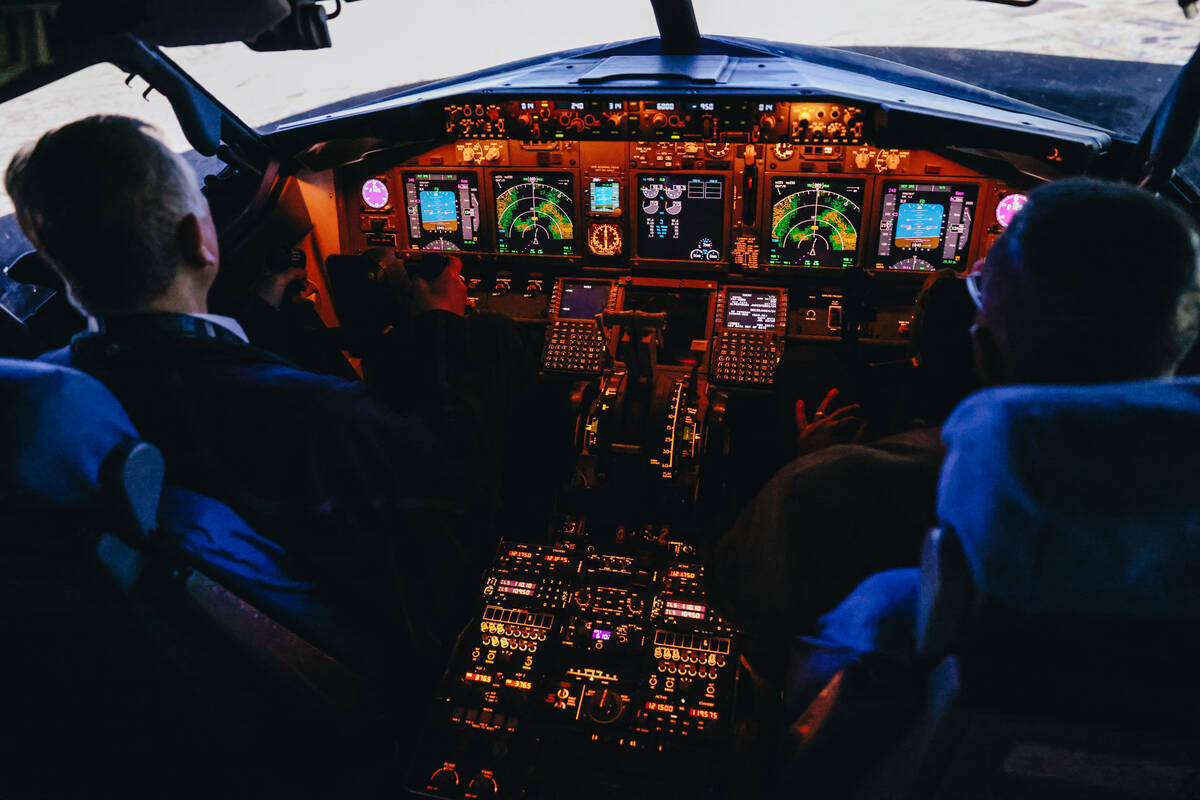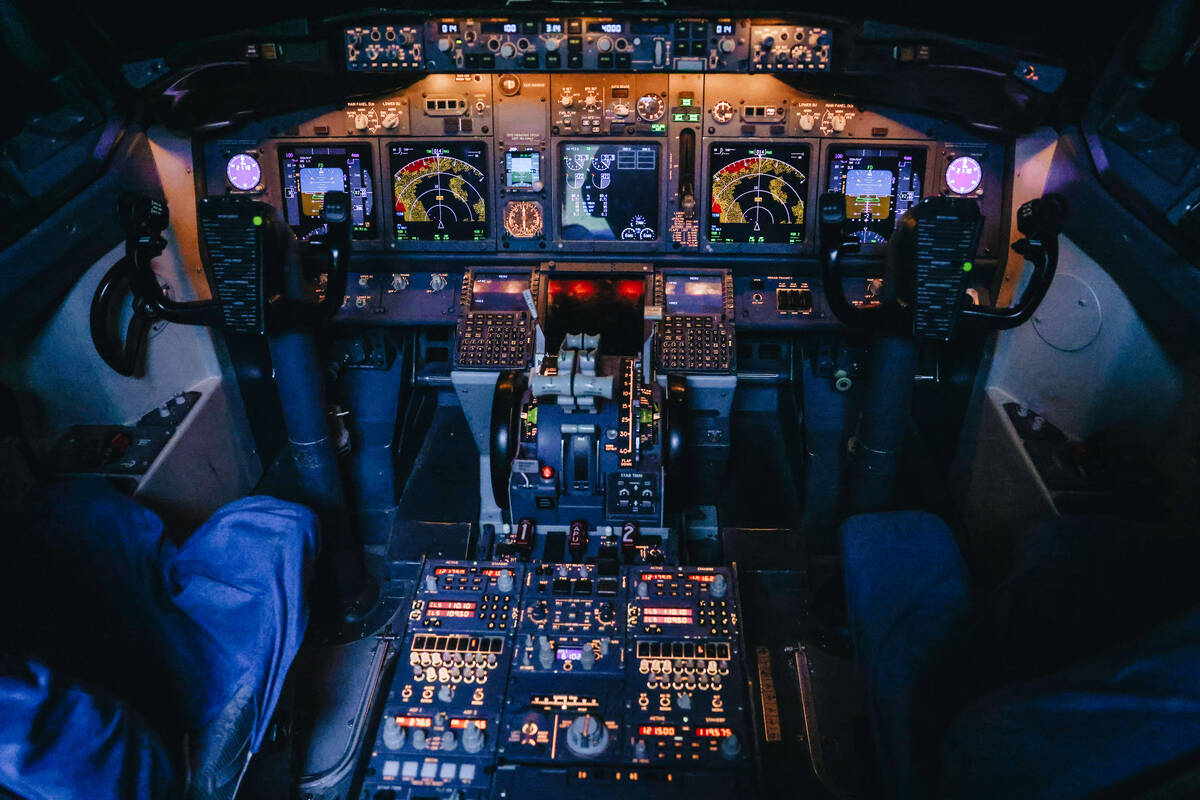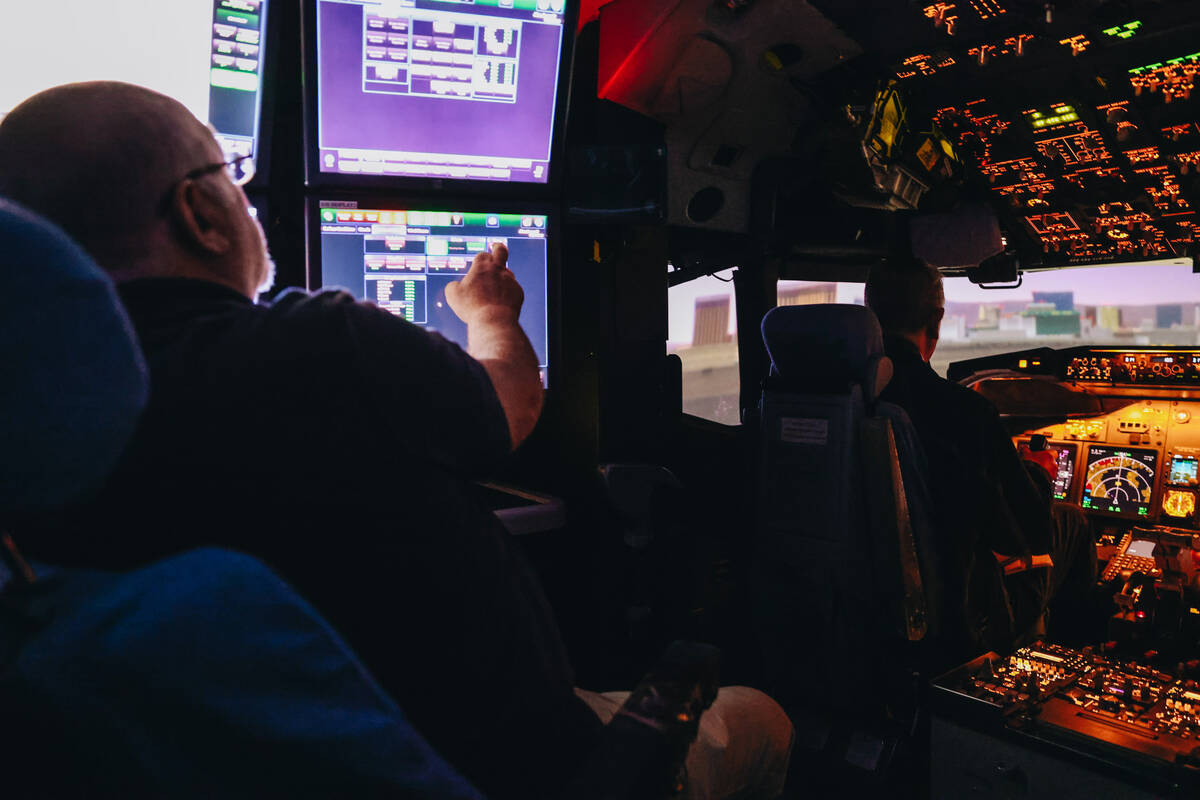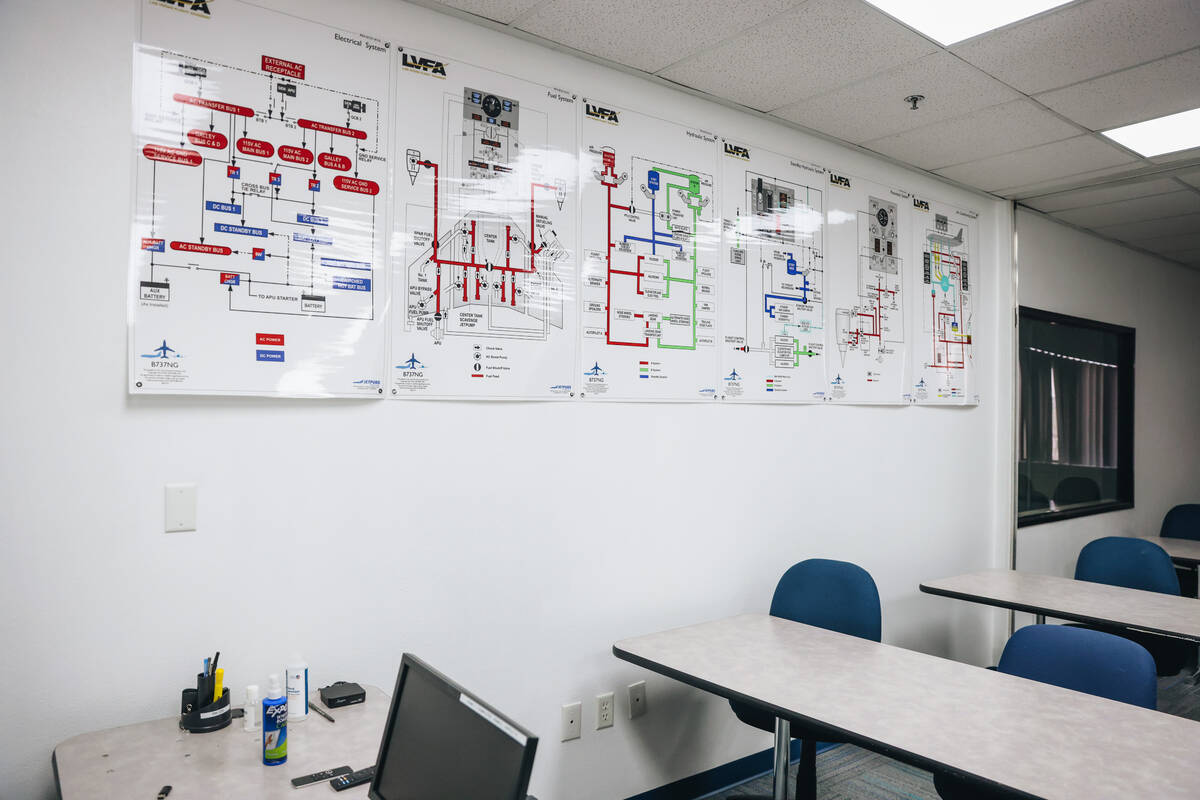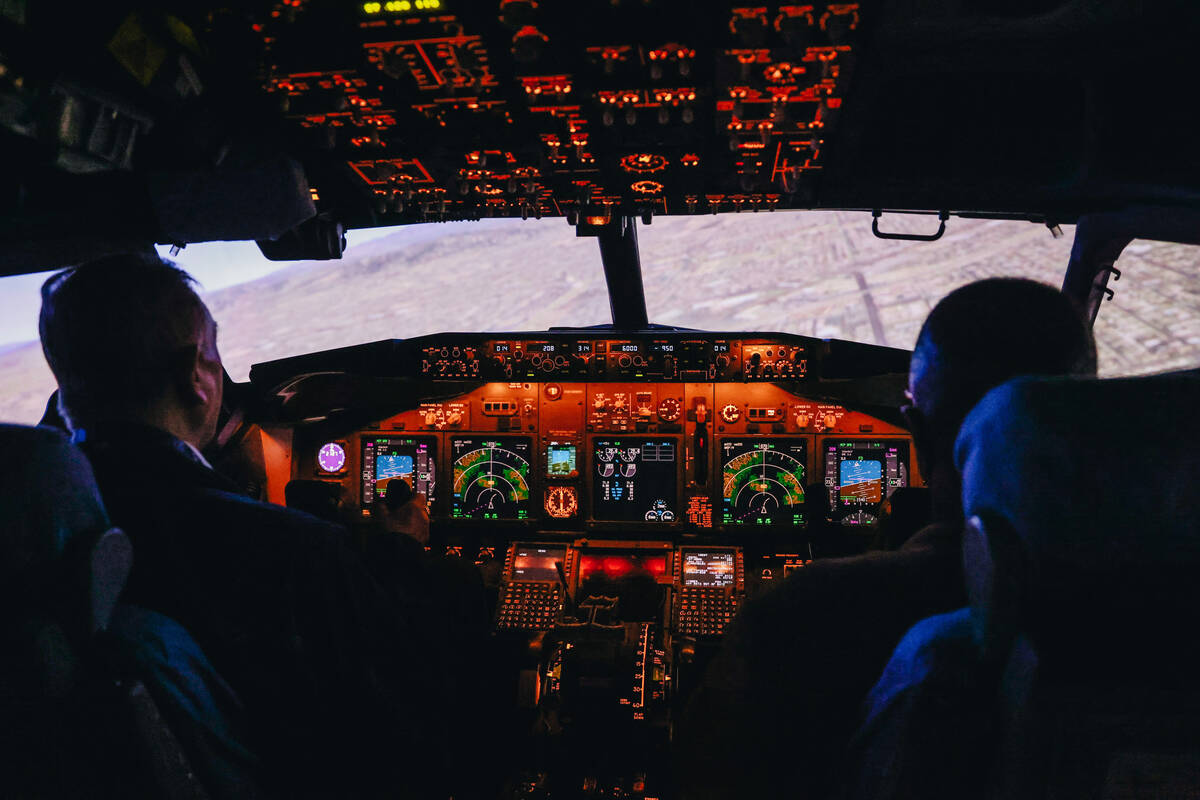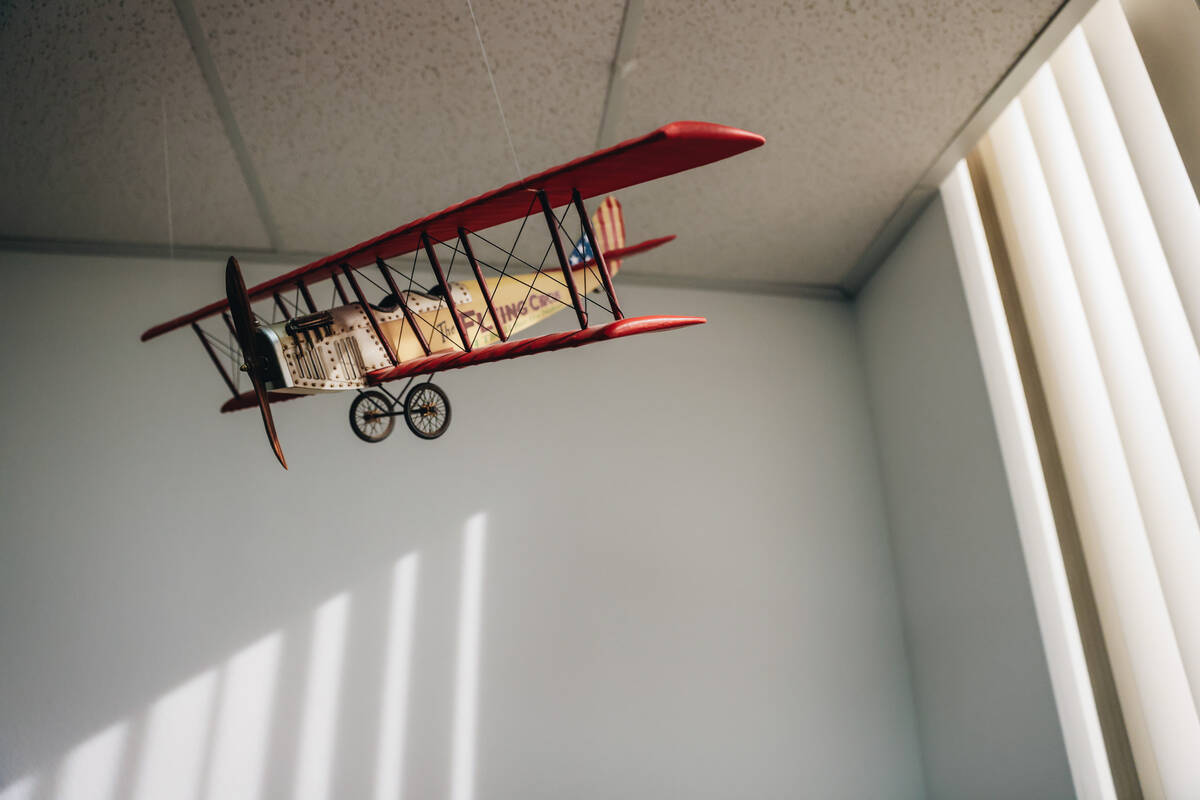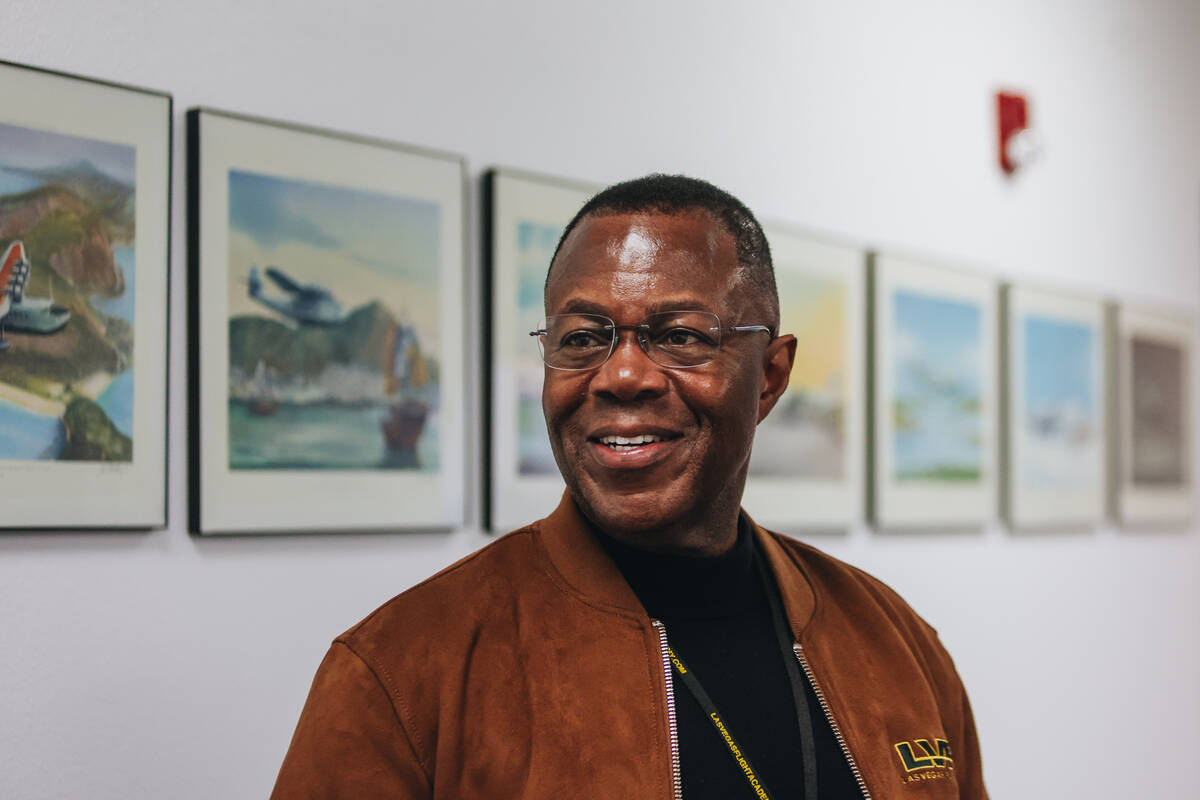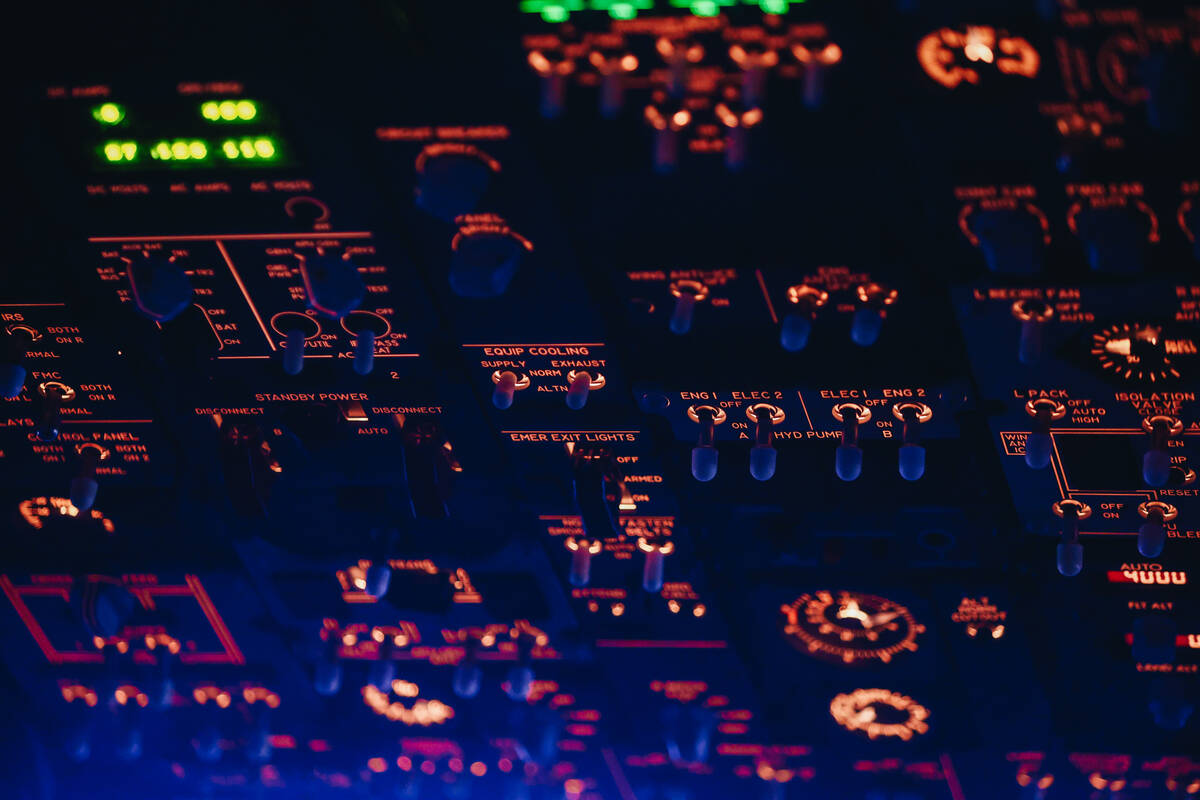Taking off: Academy owner boosts future minority pilots with flight school
The owner of a recently reopened flight school wants to open doors — mainly airliner cockpit doors — to minorities and women who dream of flying as a career.
Ronald Kelly, the owner of Las Vegas Flight Academy in Henderson, is also the latest recipient of the Wright Brothers Master Pilot award given by the Federal Aviation Administration in recognition of 50 years of safe flying.
In a reception marking the reopening of the flight school atop Whitney Mesa on Saturday, Kelly received the award and also announced the formation of the nonprofit Minority Pilots Advancement Foundation, designed to educate young girls and minority teens about careers in aviation and drive generational change for them and their families.
Youth who are served by the foundation will be trained at Flight Ventures Aviation Academy in Temecula, California, a basic flight school owned by Kelly and Chris and Danni Haug. Once pilots get that certification, they can move up to the airliner training offered in Southern Nevada with flight simulators for commercial jets, including the popular Boeing 737 aircraft series flown by many airlines.
Wright award
Kelly became one of a small group of Black aviators to receive the FAA award, named for Orville and Wilbur Wright, two American aviation pioneers credited with inventing, building, and flying the world’s first successful motor-operated airplane.
The Wright Brothers made the first controlled, sustained flight of a powered, heavier-than-air aircraft with the Wright Flyer on Dec. 17, 1903, at Kitty Hawk, North Carolina. The brothers also were the first to invent aircraft controls that made fixed-wing powered flight possible.
Kelly said he was surprised but delighted to be an award recipient and that it was coincidental but significant that the reopening of the school, the presentation of the award and the announcement of the foundation all came during Black History Month.
Kelly has become one of a small group of Black Americans to receive the award.
“Although the FAA does not track the race of Wright Brothers Master Pilot Award recipients, given that less than 3 percent of all U.S. airline pilots are African American, we can assume that the number of Wright Brothers Award recipients who are African American is very, very small,” said Alan Meyer, an associate professor specializing in technology and aviation history at Auburn University, and the author of “Flying While Black.” That book investigates the slow pace of racial integration in the airline cockpit from the Civil Rights Era to the present.
Kelly said he is humbled to receive the award, but wants young pilots and their families to experience the same exhilaration of having a flying career.
Kelly first witnessed that level of excitement at Locke High School near Los Angeles International Airport, where students routinely watch planes fly in and out of the West’s busiest airport.
Language skills
Planting the seeds of a flying career also has generated a desire by those students to sharpen their language skills since pilots must master English, the international language of aviation. Kelly said it’s imperative for foreign language speakers to develop English language skills in their pursuit of commercial flying certification.
The goal of the Minority Pilots Advancement Foundation is to bring 600 minority and women pilots a year into the aviation industry. Due to a nationwide pilot shortage, the FAA has dropped the need for a four-year degree as a prerequisite for a pilot’s license, opening opportunities for youth who may not realize that a career in aviation is now a possibility for them.
If young pilots can succeed in securing six-figure pilot salaries, Kelly believes they can improve their living standard, creating a path to live in neighborhoods with better schools and opportunities.
Development of the Las Vegas Flight Academy is a key part of the process.
“The school has been open for awhile and we wanted to do this (reception ceremony), but there were just so many things going on in Las Vegas in recent weeks,” Kelly said in an interview at the school, which has around 25 employees.
“Las Vegas has changed so much since the first time I was here, and I continue to fly people here for big events. It’s just a little harder now,” he said. “With Formula One and Super Bowl and Las Vegas being the sports and entertainment capital of the world, it’s not as easy with special-event landing fees and getting an inexpensive hotel room.”
Future lodging
And that’s part of the future of the Las Vegas school. Kelly wants to develop a hotel near the flight school so that trainees will have a nearby place to stay when they’re in town for training, regardless of other big events that may bump up the cost of lodging.
The two-story flight school building has three simulators and eight bays with several classrooms and flight briefing rooms. Throughout the building, there are comfortable lounge areas for studying and collaboration among trainees.
The Las Vegas flight school has enabled a full-circle transition for Kelly.
He began flying sailplanes in Southern California at age 14 and earned his private pilot’s license with the dream of someday becoming a space shuttle pilot. Space shuttles, after returning from orbit, became gliders in their final landing approach.
Kelly’s dream of flying a shuttle was delivered a devastating blow when it was determined he was slightly colorblind — a correctable condition with today’s advanced medical procedures but a roadblock in Kelly’s early career.
He turned his attention to a professional career in real estate sales and development, but remained passionate about flying.
He began flying charter passengers in a Gulfstream jet and was a partner in the eight-bay, 38,000-square-foot Pan Am flight simulator complex in Southern Nevada.
In 2004, Kelly bought the assets of the Pan Am complex, which lies within the glide path of airliners flying into Harry Reid International Airport.
In 2020, he transitioned the Henderson facility into the Las Vegas Flight Academy.
With virtually around-the-clock training and pilots in high demand, the academy is becoming a busy place for hundreds of trainees who dream of soaring higher and fulfilling a dream career.
Contact Richard N. Velotta at rvelotta@reviewjournal.com or 702-477-3893. Follow @RickVelotta on X.



